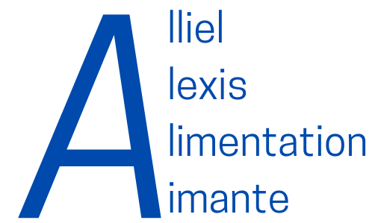Eating Disorders: 15 Harmful Myths Debunked
A Compassionate Guide for International Patients in Paris | English Speaking Dietitian
If you're reading this, you may be struggling with an eating disorder and have already encountered hurtful comments or dismissive attitudes. Perhaps you're an expatriate in Paris, navigating French healthcare while dealing with a condition that's surrounded by misconceptions. Or maybe you're a family member trying to understand what your loved one is going through. Whatever your situation, the myths we're about to deconstruct have likely crossed your path – and they cause real harm.
Eating disorders affect approximately 9% of the global population during their lifetime – that's nearly 700 million people. Yet they remain among the most stigmatized psychiatric conditions. This stigmatization isn't just a social injustice: it delays diagnoses, compromises care, worsens symptoms, and can cost lives.
As an English-speaking dietitian specializing in eating disorders in Paris, I work daily with international patients who face unique challenges: cultural differences around food, language barriers, distance from familiar support systems, and widespread misconceptions that follow them across borders. This article aims to be a tool for collective liberation – each debunked myth is a barrier removed between suffering individuals and the understanding and care they deserve.
Understanding eating disorders truly is the first step toward healing – whether you're a patient, a loved one, or a healthcare provider.
Myth #1: "It's a Choice, a Lack of Willpower"
The scientific reality
This myth is perhaps the most destructive of all. It transforms a complex neurobiological illness into a simple moral failing. Yet scientific advances over the past decades demonstrate unequivocally that eating disorders are brain diseases, not lifestyle choices.
Behavioral genetics studies reveal that 50-80% of the risk of developing an eating disorder is genetic. Brain imaging studies show structural and functional differences in reward circuits, emotional regulation, and impulse control. Gut microbiome research reveals disruptions in the gut-brain axis that influence appetite, satiety, and mood.
Asking someone to "just eat normally" is like asking a diabetic person to "just regulate their insulin." An eating disorder is not a lack of discipline – it's a complex biological dysfunction requiring specialized treatment.
The impact on international patients
For expatriates in Paris, this myth can be particularly isolating. Cultural differences in attitudes toward food and mental health, combined with the "willpower" narrative, can make seeking help feel doubly shameful. Many international patients tell me they've waited years to consult because they believed they "should be able to handle it alone." This belief generates devastating guilt and prevents appropriate help-seeking.
Myth #2: "It Only Affects Young, White, Thin Women"
The data that breaks the stereotype
This reductive representation is not only false but dangerous: it renders entire populations invisible and dramatically delays their access to care.
Regarding gender: 1 in 3 people with eating disorders is male. Men represent 25% of anorexia cases yet are systematically underdiagnosed. Their mortality rate is 6-8 times higher than women's, partly due to delayed diagnoses caused by this myth.
Regarding age: eating disorders can develop at any age, from childhood (cases documented as young as 6) to 70 years and beyond. Cases in people over 40 are increasing and often unrecognized by healthcare professionals.
Regarding ethnicity: eating disorders affect all ethnicities with similar prevalence rates. However, people of color have less access to care and are less often correctly diagnosed.
Regarding the LGBTQIA+ community: LGBTQIA+ individuals have significantly higher eating disorder rates. Gay men represent about 42% of men with eating disorders while being only 5% of the male population. Transgender or non-binary people are four times more likely to have an eating disorder.
Regarding weight: eating disorders occur at any weight. Binge eating disorder, the most common eating disorder, often affects people who are overweight or obese. Atypical anorexia (with "normal" or higher weight) is frequent and equally medically dangerous.
Myth #3: "You Never Fully Recover from an Eating Disorder"
The encouraging truth from scientific data
This myth is particularly insidious because it creates a self-fulfilling prophecy. If you believe recovery is impossible, why fully commit to treatment? Yet scientific data tells a very different story.
A 2024 meta-analysis of 415 studies and over 88,000 patients shows significant recovery rates. For anorexia nervosa: approximately 46% achieve full recovery, 33% improve significantly, and 22-year follow-up studies show nearly 63% eventually fully recover. For bulimia nervosa: up to 70% of treated individuals recover, with cycles of remission and relapse but an overall positive trajectory. For binge eating disorder: 45% achieve full recovery, 30% significant partial remission.
Factors associated with better recovery rates include: early diagnosis and intervention, appropriate multidisciplinary treatment, treatment of comorbidities (especially depression), family and social support, and relapse prevention programs.
Recovery isn't just possible – it's the reality for many people. And even when the journey is long, every step counts. Many of my international patients have not only recovered but found that the challenge made them stronger.
Myths #4-15: Key Points for International Patients
The remaining myths follow the same pattern of misunderstanding and harmful simplification. Here are the key truths to remember:
Eating disorders are NOT just about food – they're complex conditions involving emotional regulation, identity, relationships, and neurobiology
Eating disorders are NOT for attention – most sufferers hide their symptoms, often for years
Eating disorders ARE serious medical conditions – anorexia has the highest mortality rate of any psychiatric disorder
Parents do NOT cause eating disorders – families can be powerful allies in recovery
You do NOT need to be underweight to have an eating disorder – disorders occur at all weights
Men DO get eating disorders – 1 in 3 people with eating disorders are male
Eating disorders are NOT a teenage phase – they can develop at any age
Eating disorders are NOT easy to spot – they are diseases of secrecy
"Just eating normally" is NOT a solution – therapeutic refeeding requires specialized support
Social media does NOT cause eating disorders alone – they have multiple genetic, biological, and environmental causes
ALL eating disorders are serious – not just anorexia
NOT all healthcare professionals understand eating disorders – seek specialized care
For International Patients in Paris: You Deserve Compassionate Care
Living with an eating disorder while navigating life as an expatriate in Paris adds unique layers of complexity. Far from familiar support systems, facing cultural differences around food, and encountering language barriers can intensify feelings of isolation.
You deserve care that understands both your eating disorder and your expatriate experience. You deserve to be heard in your language, without barriers during sensitive discussions. You deserve access to professionals who recognize eating disorders in all their presentations, not just the stereotypes.
If you've been putting off seeking help because of these myths, know that recovery is possible. If you've had negative experiences with healthcare providers who didn't understand, know that specialized care exists. If you've been waiting until things get "bad enough," know that earlier intervention leads to better outcomes.
You are not alone in this. Support is available in your language.
Living and eating are two sides of the same coin.
Lighten your relationship with food and free yourself from what hinders you!
📚 Related Resources:
Contact:
📞 +33 6 22 41 55 21
📅 Book an appointment on Doctolib
📍 Paris 6th (59 rue de Seine) | Paris 20th (Cabinet Lionnes) | Le Raincy
💻 Video consultations available worldwide
RPPS: 10007258733 | ADELI: 75 95 0878 1


Vivre et manger sont les deux faces de la même pièce
Lighten your relationship with food and free yourself from what hinders you!
+33 6 22 41 55 21
© 2024. All rights reserved.
RPPS : 10007258733
N° ADELI : 75 95 0878 1
